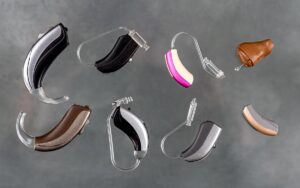
You may have certain misconceptions regarding sensorineural hearing loss. Okay, okay – not everything is wrong. But there is at least one thing worth clearing up. Normally, we think that sensorineural hearing loss develops over time while conductive hearing loss occurs suddenly. It so happens that’s not necessarily true – and that rapid onset of sensorineural hearing loss may often be wrongly diagnosed.
Is Sensorineural Hearing Loss Commonly Slow Moving?
When we discuss sensorineural hearing loss or conductive hearing loss, you could feel a little confused – and we don’t blame you (the terms can be quite dizzying). So, the main point can be categorized in this way:
- Sensorineural hearing loss: This form of hearing loss is normally due to damage to the nerves or stereocilia in the inner ear. Your thinking of sensorineural hearing loss when your considering hearing loss from loud noise. In the majority of cases, sensorineural hearing loss is effectively irreversible, though there are treatments that can keep your hearing loss from further degeneration.
- Conductive hearing loss: This form of hearing loss is the result of an obstruction in the outer or middle ear. This might be because of earwax, inflammation from allergies or many other things. Conductive hearing loss is normally treatable (and managing the root issue will generally result in the recovery of your hearing).
It’s typical for sensorineural hearing loss to occur slowly over a period of time while conductive hearing loss takes place somewhat suddenly. But that’s not always the situation. Sudden sensorineural hearing loss (or SSNHL) is somewhat uncommon, but it does exist. And SSNHL can be particularly damaging when it isn’t treated properly because everyone thinks it’s an unusual case of conductive hearing loss.
Why is SSNHL Misdiagnosed?
To understand why SSNHL is misdiagnosed somewhat often, it might be practical to look at a hypothetical interaction. Let’s imagine that Steven, a busy project manager in his early forties, woke up one morning and couldn’t hear anything out of his right ear. The traffic outside seemed a little quieter. So, too, did his barking dog and a crying baby. So he did the smart thing and scheduled a hearing exam. Of course, Steven was in a rush. He was just getting over a cold and he had lots of work to catch up on. Maybe he wasn’t sure to emphasize that recent illness at his appointment. After all, he was thinking about getting back to work and most likely forgot to mention some other important info. And so Steven was prescribed with some antibiotics and told to return if the symptoms persisted by the time the pills had run their course. Rapid onset of sensorineural hearing loss is fairly rare (something like 6 in 5000 according to the National Institutes of Health). So, Steven would normally be fine. But there could be severe consequences if Steven’s SSNHL was misdiagnosed.
Sensorineural Hearing Loss: The First 72 Critical Hours
SSNH can be caused by a variety of conditions and events. Some of those causes might include:
- Head trauma of some kind or traumatic brain injury.
- Certain medications.
- A neurological condition.
- Inflammation.
- Problems with blood circulation.
This list could go on for, well, quite a while. Whatever problems you should be watching for can be better understood by your hearing professional. But quite a few of these hidden problems can be treated and that’s the most important point. And if they’re addressed before damage to the nerves or stereocilia becomes permanent, there’s a chance that you can minimize your long term loss of hearing.
The Hum Test
If you’re like Steven and you’re experiencing a bout of sudden hearing loss, there’s a short test you can perform to get a general concept of where the issue is coming from. And it’s pretty straight forward: just start humming. Pick your favorite song and hum a few measures. What does it sound like? If your loss of hearing is conductive, your humming should sound the same in both ears. (After all, when you hum, the majority of of what you’re hearing is coming from in your own head.) If your humming is louder in one ear than the other, the loss of hearing may be sensorineural (and it’s worth pointing this out to your hearing professional). Inevitably, it is possible that sudden sensorineural hearing loss may be misdiagnosed as conductive hearing loss. So when you go in for your hearing test, it’s a good idea to discuss the possibility because there may be serious repercussions.




